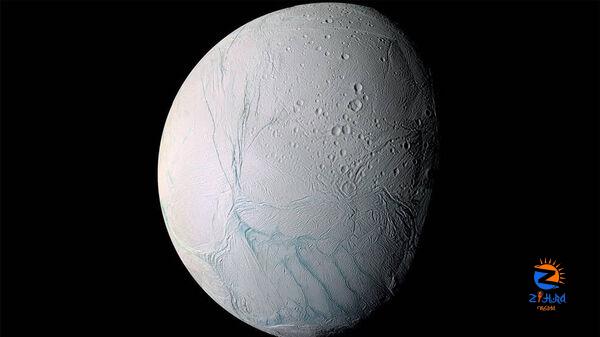
[ad_1]
Phosphorus, a key chemical element for many biological processes, has been found in icy grains emitted by Enceladus, the small moon of Saturn, into space and is likely abundant in its subsurface ocean, a new study published in journal Nature reported.
An international team of researchers, featuring Frank Postberg, a planetary scientist at Freie Universität Berlin, Germany and Dr. Christopher Glein from the Southwest Research Institute in San Antonio, Texas, has unearthed a piece of crucial evidence hinting at the existence of an essential life element beneath the icy shell of Saturn’s moon, Enceladus.
NASA’s Cassini, a space probe launched to scrutinize Saturn and its extensive system of moons and rings, has delivered crucial insights over its 13-year journey. Data retrieved from Cassini has played an instrumental role in this discovery.
Phosphorus, the least abundant of the essential elements necessary for biological processes, hadn’t been detected until now. The element is a building block for DNA, which forms chromosomes and carries genetic information, and is present in the bones of mammals, cell membranes, and ocean-dwelling plankton. Phosphorus is also a fundamental part of energy-carrying molecules present in all life on Earth. Life wouldn’t be possible without it.
“We previously found that Enceladus’ ocean is rich in a variety of organic compounds,” said Frank Postberg, who led the new study, published on Wednesday, June 14, in the journal Nature.
“But now, this new result reveals the clear chemical signature of substantial amounts of phosphorus salts inside icy particles ejected into space by the small moon’s plume. It’s the first time this essential element has been discovered in an ocean beyond Earth.”
Dr. Glein also shed light on the astonishing concentration of phosphates within Enceladus’s waters. “We found phosphate concentrations at least 100 times higher in the moon’s plume-forming ocean waters than in Earth’s oceans,” he said.
“With this finding, the ocean of Enceladus is now known to satisfy what is generally considered to be the strictest requirement for life. The next step is clear – we need to go back to Enceladus to see if the habitable ocean is actually inhabited.”
“This key ingredient could be abundant enough to potentially support life in Enceladus’ ocean; this is a stunning discovery for astrobiology and a major step forward in the search for life beyond Earth.”
Glein stressed that life has not been found on the moon – or anywhere else in the solar system beyond Earth: “Having the ingredients is necessary, but they may not be sufficient for an extraterrestrial environment to host life. Whether life could have originated in Enceladus’ ocean remains an open question.”
The research, published in the journal Nature as “Detection of Phosphates Originating from Enceladus’ Ocean,” includes contributions from scientists across ten global institutions.
Download The Mint News App to get Daily Market Updates.
Updated: 14 Jun 2023, 10:02 PM IST
[ad_2]